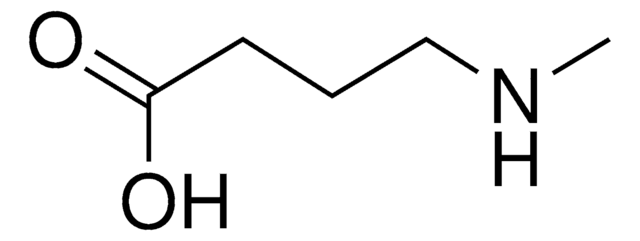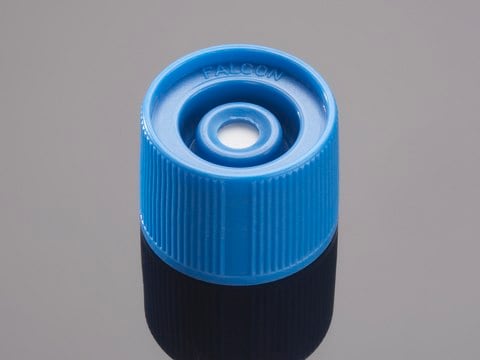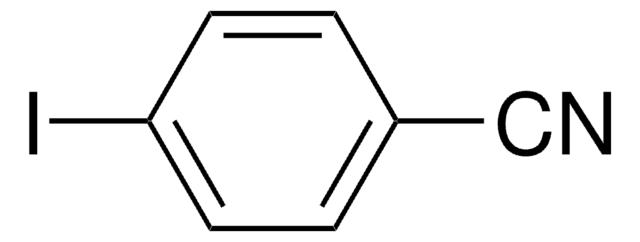D139505
4-(Dimethylamino)benzonitrile
98%
Synonym(s):
4-Cyano-N,N-dimethylaniline, DMABN
About This Item
Recommended Products
Quality Level
Assay
98%
form
crystals
bp
318 °C (lit.)
mp
72-75 °C (lit.)
SMILES string
CN(C)c1ccc(cc1)C#N
InChI
1S/C9H10N2/c1-11(2)9-5-3-8(7-10)4-6-9/h3-6H,1-2H3
InChI key
JYMNQRQQBJIMCV-UHFFFAOYSA-N
Looking for similar products? Visit Product Comparison Guide
Related Categories
General description
Application
Signal Word
Warning
Hazard Statements
Precautionary Statements
Hazard Classifications
Acute Tox. 4 Oral - Eye Irrit. 2 - Skin Irrit. 2 - Skin Sens. 1 - STOT SE 3
Target Organs
Respiratory system
Storage Class Code
11 - Combustible Solids
WGK
WGK 2
Flash Point(F)
Not applicable
Flash Point(C)
Not applicable
Personal Protective Equipment
Choose from one of the most recent versions:
Certificates of Analysis (COA)
Don't see the Right Version?
If you require a particular version, you can look up a specific certificate by the Lot or Batch number.
Already Own This Product?
Find documentation for the products that you have recently purchased in the Document Library.
Customers Also Viewed
Our team of scientists has experience in all areas of research including Life Science, Material Science, Chemical Synthesis, Chromatography, Analytical and many others.
Contact Technical Service











